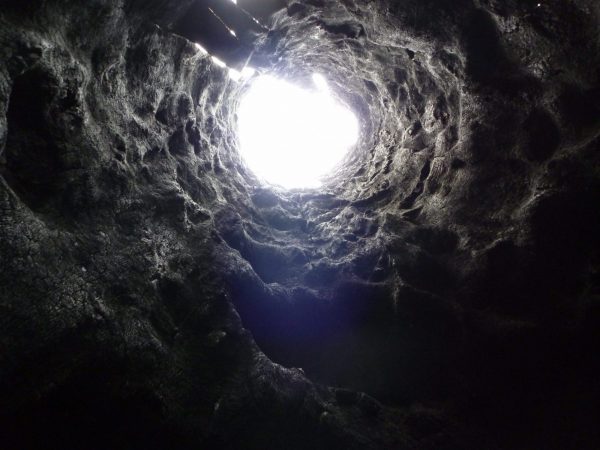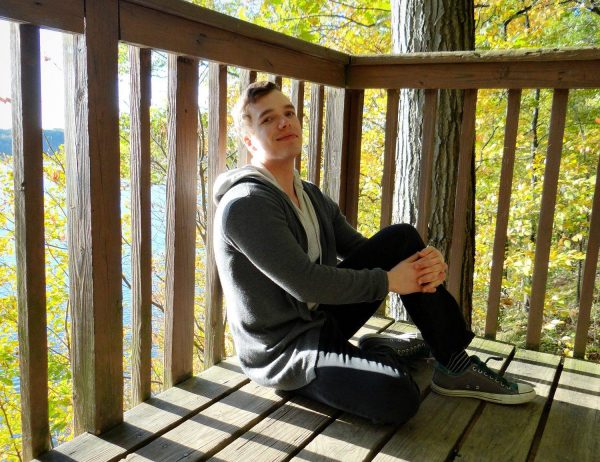 By Colorado Review editorial assistant Ross Reagan
By Colorado Review editorial assistant Ross Reagan
During May, we celebrate two very important events: Mental Health Awareness Month and Mother’s Day.
Mother’s Day this year, though, marks an occasion that resembles an antipode. Many families, and mothers of families, are not just celebrating the joy of life but simply the fact that they are alive. Even more pertinent: those who are alive aren’t always in a festive mood.
For many mothers, sacrifice seems to be an inherent part of their identity, a performance of supposed strength hidden under a gaping hole of very real depression.
Jones’s “Antipodes” digs to unearth an artifact nobody wants to talk about but has been experienced by millions: the decline of mental health. We have stories that take us to dark places, but Jones centers us around the dark place—literally, a gaping sinkhole that comes alive in the eyes of the narrator and the congregation of faces around her. The narrator looks into it, speculates if there’s even an end to its form. She and a committee even try to disguise the hole, hold meetings to talk about it, and erect a temple to shield them from the danger of falling in.
Pair that with a quite literal and physical “rough patch” on the back of the narrator’s scalp that she can’t stop obsessing about, and you have mental health imploding realms of internal, external, and maternal excavations. She is a mother of three on the verge of collapse. She tells us that the hole in her head “sounds like a joke, but it was not a joke to me then, and it still doesn’t feel funny to me now.”
The first question I had after reading this short story centered around intense, involuntary sadness, one that seemed to be unearthed from inside of me: what really lurks beneath the surface of depression, and what happens if nobody believes us when we are depressed? More alarming: what if we never truly find a way out?
In thinking about the postpartum depression the narrator faces after her third child, I couldn’t help but also think about my own mother’s bout with postpartum depression when I was born. She had me in her mid-thirties after two other children. By the time I was twelve, she had gone back to school and was working full time. She soon seemed to take on the role of Supermom.
As a teenager and young adult, I never truly considered the toll and possible erasure of identity that manifested from her exhaustive work as a mother. I never truly understood how sacrifice in itself soon becomes one’s identity. We see this with the narrator near the end when she admits, “I lost myself in my children long ago.” That loss no longer is different from the literal sinkhole, no longer reminiscent of some Mayan scream she was formerly obsessed with; she has fallen into a very real cataclysmal struggle she can’t climb out of now. She instead chooses to “fall and fall and fall until falling becomes flight” and leaves us with, “. . . from some heavenly vantage point, I will see my children again, and I will know what to do, how to save them all.”
By the end, the narrator makes no claim she has an all-knowing capacity to fix her life. In fact, much like the title suggests, she has been running in the opposite direction. She is not living, but existing, which is what many who struggle with mental health do. The world and those dark sinkholes can encroach upon us—and mothers—everywhere. They can convince mothers to try to be saviors for everyone.
Perhaps Jones naming that dangerous ideology—that fallen sinkhole now placed at the forefront of our imagination—can create a much richer and helpful conversation this Mother’s Day, one that we can all benefit from, proving that mothers and mental health are not mutually exclusive.

Ross Reagan is a second-year MFA candidate in fiction at Colorado State University and an editorial assistant for Colorado Review.